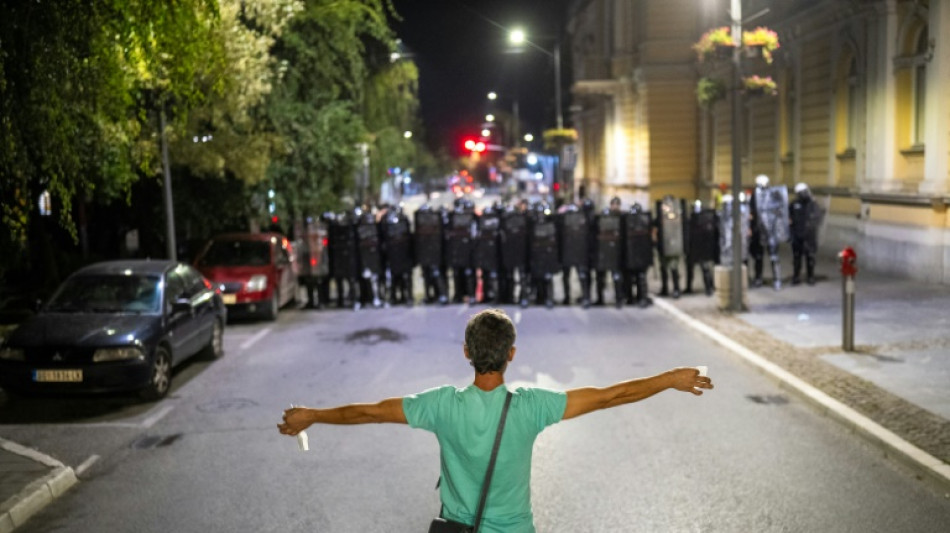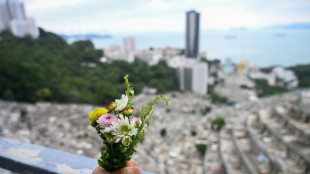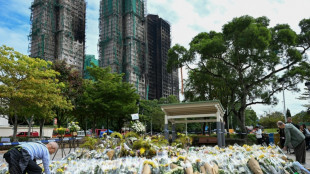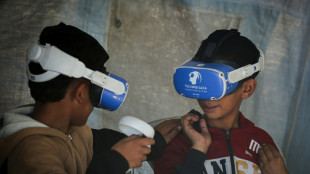
| SCS | 0.55% | 16.38 | $ | |
| CMSD | -0.13% | 23.29 | $ | |
| BCC | -1.18% | 75.13 | $ | |
| CMSC | -0.39% | 23.32 | $ | |
| GSK | -1.42% | 47.19 | $ | |
| NGG | -0.61% | 75.65 | $ | |
| BP | 1.12% | 36.51 | $ | |
| RIO | 0.03% | 71.97 | $ | |
| AZN | -2.44% | 90.52 | $ | |
| RBGPF | 1.54% | 79 | $ | |
| BTI | -0.91% | 58.13 | $ | |
| BCE | -0.09% | 23.49 | $ | |
| JRI | -0.15% | 13.78 | $ | |
| RYCEF | -2.68% | 13.83 | $ | |
| VOD | -2.8% | 12.13 | $ | |
| RELX | -1.23% | 39.72 | $ |

Serbia's president vows 'strong response' after days of unrest
Serbia's president on Sunday vowed a "strong" response to anti-government protests, after nearly a week of violent clashes involving his supporters, police and demonstrators across the country.
Clashes have erupted in the capital, Belgrade and other cities for five nights in a row, with fireworks, stones, stun grenades and tear gas used.
More than 130 police officers have been injured so far, the right-wing president, Aleksandar Vucic, said at a press conference in Belgrade, with dozens of citizens also reporting injuries and seeking medical assistance.
On Saturday, violence flared in Belgrade, Novi Sad and Valjevo, where a small group of masked men attacked and set fire to the empty offices of Vucic's ruling Serbian Progressive Party.
"You will see the full determination of the Serbian state. We will use everything at our disposal to restore law, peace and order," Vucic said.
He added that the government needed a few days to prepare "the legal and formal framework" for the response.
"It will be very different from what you have seen so far," he added, without disclosing details, but said that declaring a state of emergency was not being considered.
Vucic compared anti-government protesters with "terrorists", a term he has frequently repeated since mass demonstrations began late last year.
Almost daily protests have gripped Serbia since November, following the collapse of a railway station roof that killed 16 people.
The tragedy became a symbol of deep-rooted corruption in the Balkan nation, with demands for a transparent investigation growing into calls for early elections.
At their peak, the protests drew hundreds of thousands onto the streets.
The mostly peaceful demonstrations deteriorated earlier this week when large groups of pro-government supporters — many masked and some armed with batons and fireworks — attacked protesters.
That sparked violent clashes, further fuelled by videos shared online showing police striking unarmed demonstrators with batons.
Police have denied allegations of brutality, and accused demonstrators of attacking officers.
- 'Concerning' violence -
The European Union's commissioner for enlargement, Marta Kos, earlier this week said violence reported at protests was "deeply concerning".
Vucic said he had also received personal messages from other European officials recently, but did not provide further details.
The protests were also being followed in Russia, which remains a close Serbian ally despite Belgrade's declared path to the EU.
Russia's foreign ministry issued a statement on Friday saying that it may offer further support to Vucic and decribing the protests as "violent riots".
"Russia cannot remain unresponsive to what is happening in brotherly Serbia," it said.
While the protests have so far led to the resignation of the prime minister and the collapse of the government, Vucic has remained defiant.
He has repeatedly rejected calls for early elections and denounced the demonstrations as part of a foreign plot to overthrow him, claiming that "billions of euros" had allegedly been invested in the scheme.
E.Georgiou--AN-GR



